Lush landscapes do nothing for me, and never have. Maybe it’s a general aversion to noise and busy-ness, but when it comes to temperature and foliage, I’ve always been of the opinion that less is more.
So when my brother and I decided to plan a canoe trip, our first canoe trip together in some ten years, we decided there was only one way to go: north. Far enough north that all you saw were black spruce and birch and lichen. Far enough north that the only fish available to you were lake trout and northern. Far enough north that you shared your island campsites not with other people but the droppings and hoofprints of woodland caribou, the ghosts of the forest.
A local outfitter who rented us our satellite phone told us we’d be only the fifth and sixth people to enter the park that year, which pleased us quite a bit. Ours would be a fairly grueling route: a 60 mile loop we’d take 12 days to do.
“There’s 15 portages on day two,” my brother warned me. “But most will be really short.”
By the end of our first day we had achieved something neither of us had known in quite a while: a totally pervasive silence. There was no sound of wind, none of leaves or waves, no birds or bugs or anything else. The sensation of pure silence, I learned, was a kind of aural fullness, a feeling of having your ears stuffed with cotton. Shortly thereafter I learned a few other sensations: how to distinguish between very large lake trout and very large northern by the way they ate and fought, even as they shared much of the same water. I caught personal bests in each category, no small feat after some 30 years of pretty frenetic fishing.
It’s said that the child is the father of the man, and by the middle of the trip I was struck by just how much of this experience seemed to be authored by my 7-year old self, his fantasies of monstrous fish of the north fueled by the books of indigenous American folklore I’d find on out-of-the-way racks at our small Catholic school library, pike so big they’d eat people whole. Here, in that area the French fur trappers called Le Petite Nord, I came as close to that fantasy as I ever have, and ever will.
It happened one afternoon where we discovered a small river pouring into a protected bay. The pike were stacked up one on top of another, and would dart after your fly so quickly after it landed it felt like your eyes were getting paper cuts. The action was so intense that each cast without an eat was commented upon: “Is there something wrong with my fly?” And as I released one particularly good fish I couldn’t help but look back across the miles and decades toward a little kid with a soup bowl haircut, a tackle box full of jointed Rapalas and a stack of dusty books. And I wanted to tell him something: “Thanks.”




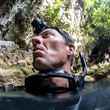


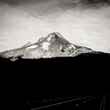
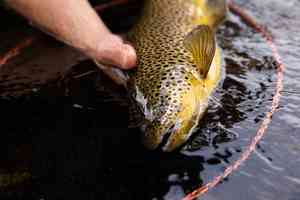

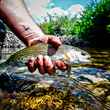
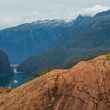
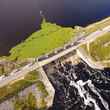
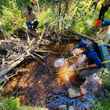
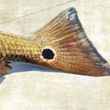
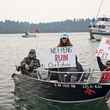



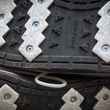
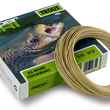



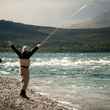
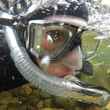
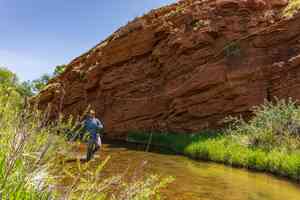
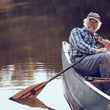
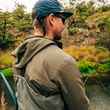
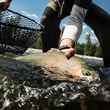
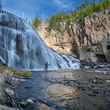
Comments
MK Smith replied on Permalink
Everyone has a different definition of success; in my life I've found that definition changes over the months and years. This trip, your retelling of it- that's success. Thank you for sharing.
Pages